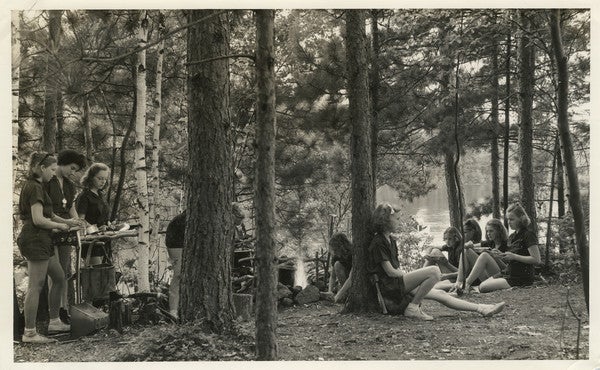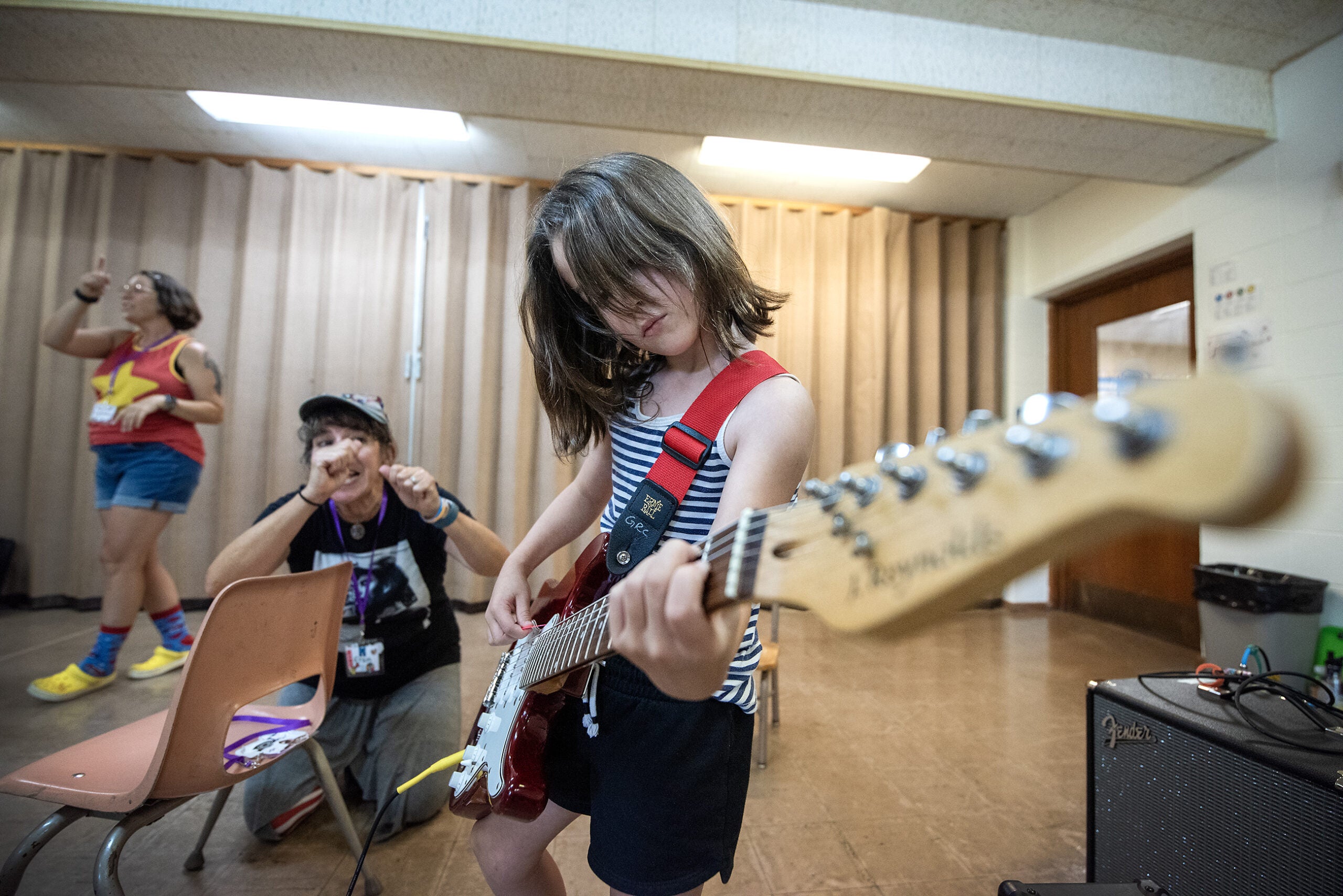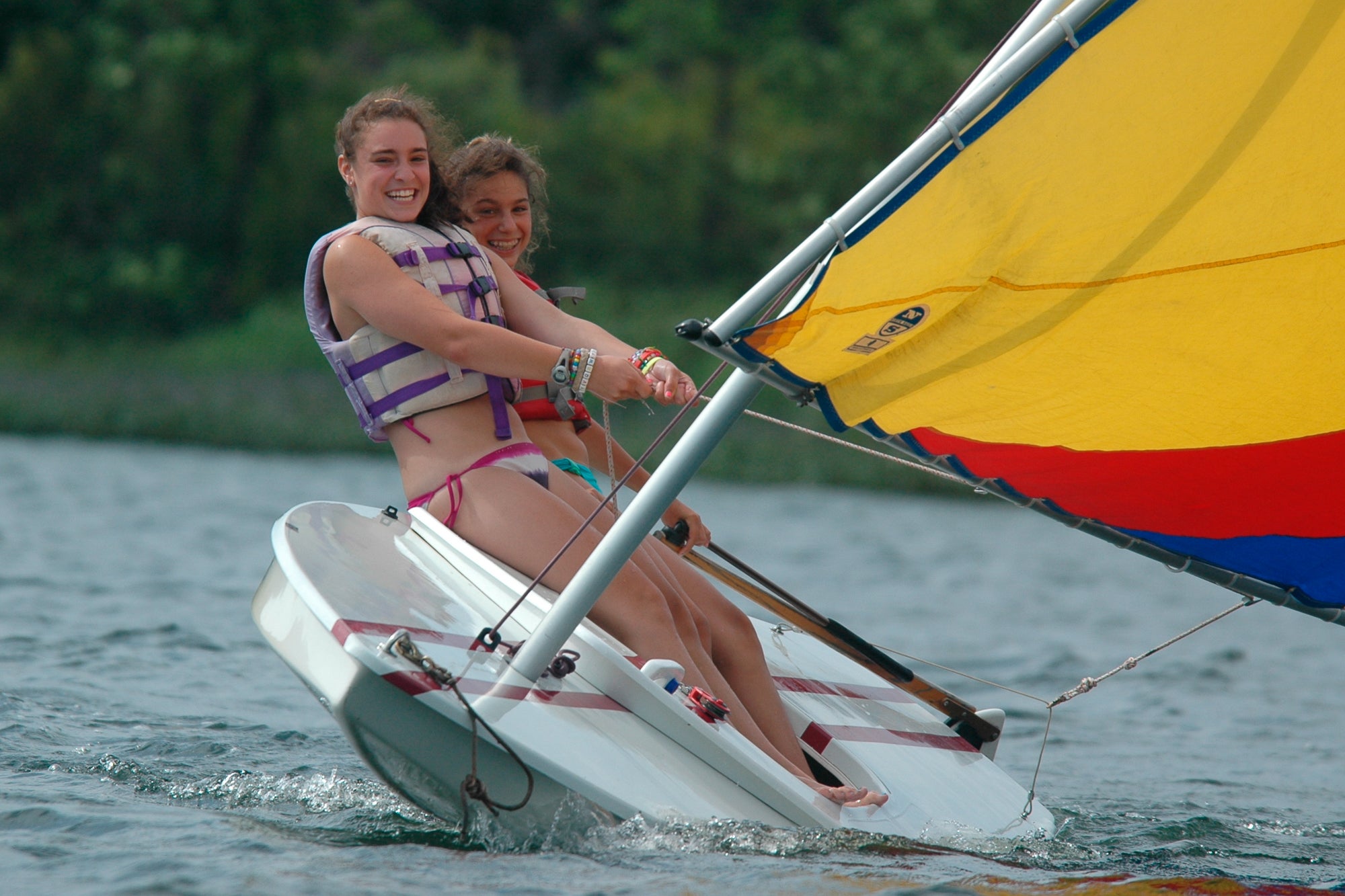Summertime is camp time for many children. It’s been that way for more than a century in Wisconsin. The above image shows campers eating a meal they cooked over an open fire (with some campers already washing dishes) at Joy Camps, located near the town of Hazelhurst in northern Wisconsin. It’s one of dozens of images in a gallery of Joy Camps photos from the Wisconsin Historical Society.
Summer camps emerged in the 1880s as part of a back-to-nature trend intended to rejuvenate people who were seen as having been laid low by the demands and evils of urban life. Women and children were believed to be particularly susceptible to the moral and physical degradation of the city, though camps for girls didn’t become common until the early 20th century. By the 1920s, camp began to be seen as an educational opportunity, in part because many of the camp directors were educators.
Joy Camps was a summer camp for girls that operated between 1930 and 1955. Barbara Ellen Joy founded the camp and served as co-director with Marjorie Camp. Joy was a well-known figure in youth camping. She’d worked in camps on the east coast and in the Midwest, and was steeped in the educational philosophy of John Dewey, which emphasized the importance of practical life experience. She brought these ideas to Joy Camps.
Stay informed on the latest news
Sign up for WPR’s email newsletter.
The camp had “camp craft” curriculum, but this didn’t entail making lanyards and candles. Based on progressive ideals for outdoor education, Joy Camps trained girls in the use of hatchets and axes; how to pitch tents and construct shelters; how to build fires; and how to cook over campfires. According to Joy, girls mastered skills that equipped them for “direct contact with nature and with things of and on the earth.”
Joy sold the camp in 1955. More than 1,000 campers had passed through her doors in its 25-year history.
See more photos and read more about Joy Camps in this image gallery from Wisconsin Historical Images.
Wisconsin Public Radio, © Copyright 2025, Board of Regents of the University of Wisconsin System and Wisconsin Educational Communications Board.




